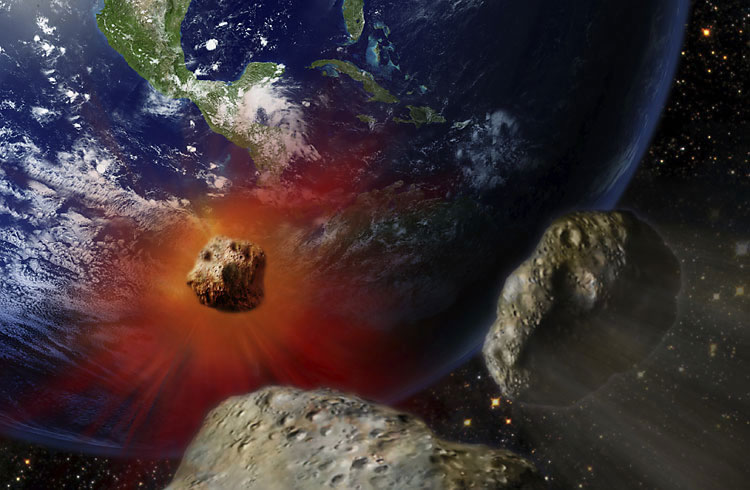Dig gold from meteors
A crowd of robotic miners will be taken to space to explore and exploit platinum, gold, iron, nickel, sulfur . in meteorites not far from Earth.
>>>The meteorite mining company was born
That scenario was unveiled by an American company, supported by renowned director David Cameroon and leading managers of Google and Microsoft. Planetary Resources co-founder Peter Diamandis said on April 24 that he wants to "turn spatial resources into what is available to humanity" , and add trillions of dollars to global assets. In addition to minerals, robots can exploit water on meteorites, which are thought to play a key role in making jet fuel for deeper exploration into space.
The first step will be to bring a telescope into space within the next 18-24 months to determine which minerals can be mined. Acknowledging this project is extremely difficult, Mr. Diamandis tried to bring together a team of well-known investors: Google founders - Larry Page and Eric Schmidt, Titanic Cameroon filmmaker, former Director Microsoft - Charles Simonyi, son of former US presidential candidate Ross Perot.

This is not the first time people dream of exploiting extraterrestrial resources. Soviet rocket specialist Konstantin Tsiolkovsky, who looked at the idea in a book about space exploration, or moon film producers in 2009 imagined such a future. The US Air and Space Administration (NASA) has even studied the feasibility of "capturing" a small meteorite, despite concerns that such technology could be "weaponized." Scientists at the Keck Space Research Institute in California (USA) assessed that pulling a larger meteorite to the moon's orbit to harvest is feasible, but requires a cost of $ 2.7 billion. Former NASA astronaut Tom Jones, Planetary Resources adviser, said the company is trying to build 'a low-cost spacecraft capable of constantly flying to near-earth meteorites'.
A 500-meter-wide platinum meteorite has reserves comparable to the whole platinum mined in the history of the earth. More than 1,500 of the nearly 9,000 near-earth meteorites in the form can reach the moon, considering the amount of energy needed to make the journey.'Our mission is not only to expand the resource base of the world, but also to increase the access and understanding of people to the solar system and the earth, by creating useful systems and cheap , ' AFP quoted Planet Resources chief engineer Chris Lewicki as saying.
However, expert Jeff Kargel of the University of Arizona (USA) warns that the project is interesting but 'too difficult' . According to him, the first step - launching a space telescope - is easy, but mining and bringing minerals to the earth will be a big challenge. However, if done, it will bring long-term benefits and can completely change the global economy.
- Australia: 4 years of plowing and destroying rock masses, it is said that it is a very precious item of 4.6 billion years old
- Gold is formed like?
- Meteors are about to bring gold to earth
- The interesting thing about gold may be unknown to you
- Why do we like gold?
- Difficult questions: How much gold is in the sea?
- Interesting little things about gold
- Instructions on how to buy gold, distinguish real gold and fake gold
- New type of gold does not scratch, harder than steel
- Gold: strange events that few people know
- Small gold is super expensive
- The American spacecraft will crash into the meteorite
 Van Allen's belt and evidence that the Apollo 11 mission to the Moon was myth
Van Allen's belt and evidence that the Apollo 11 mission to the Moon was myth The levels of civilization in the universe (Kardashev scale)
The levels of civilization in the universe (Kardashev scale) Today Mars, the sun and the Earth are aligned
Today Mars, the sun and the Earth are aligned The Amazon owner announced a secret plan to build a space base for thousands of people
The Amazon owner announced a secret plan to build a space base for thousands of people